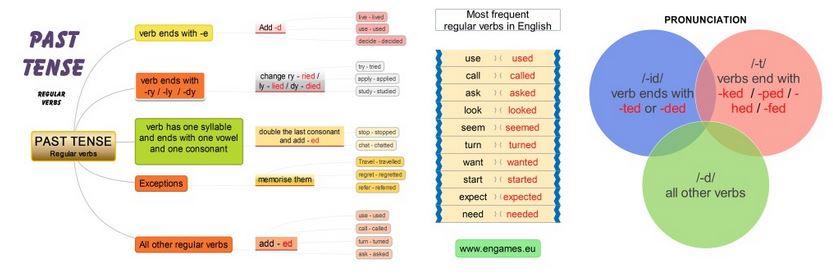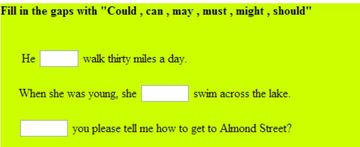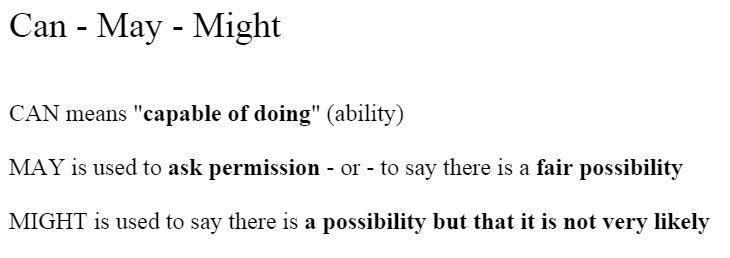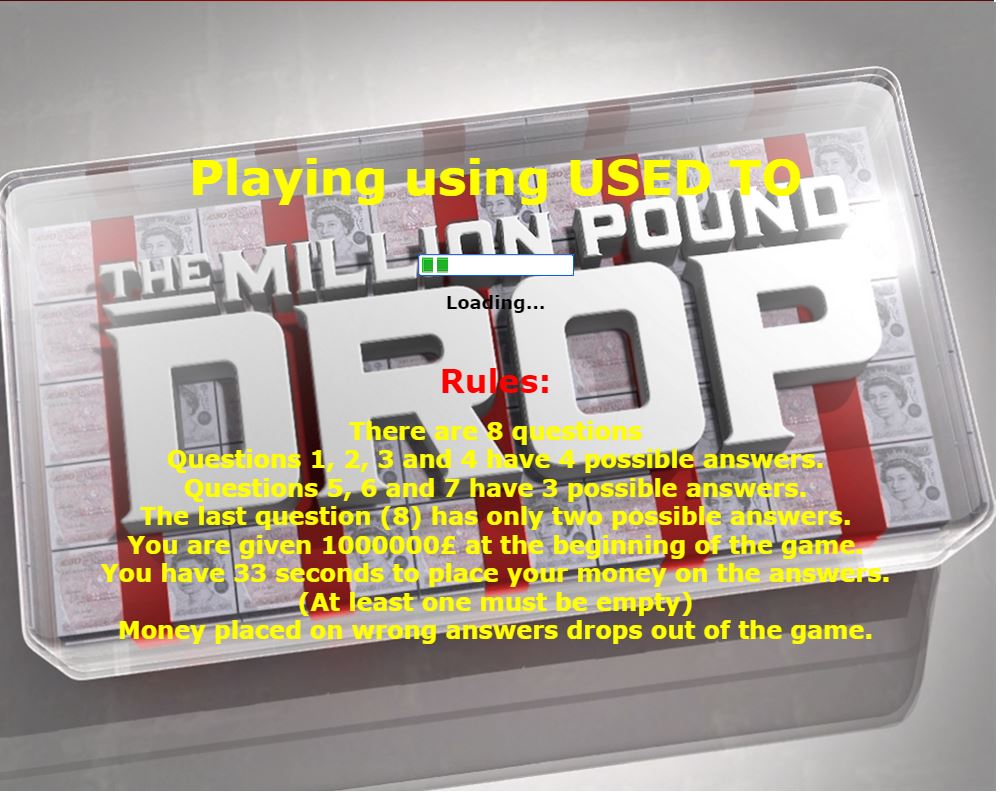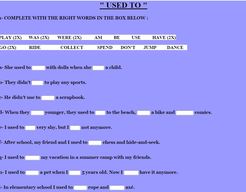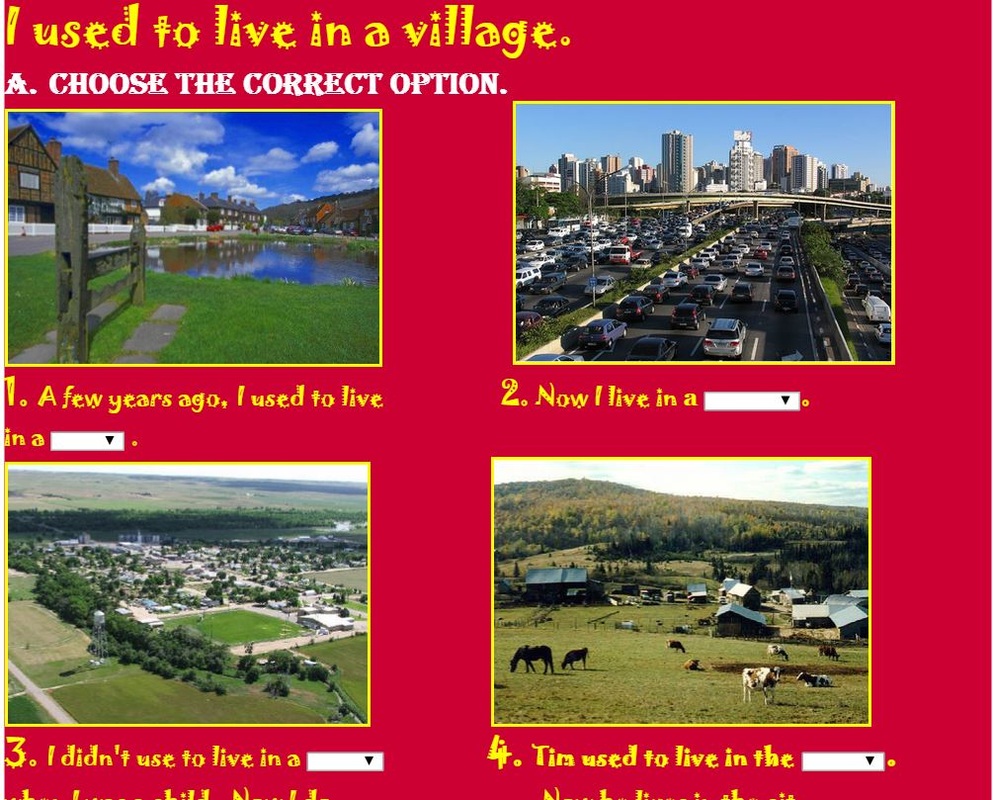PRE-INTERMEDIATE VERBS AND TENSES
TIP! You will find the files of this section on Downloads
Present continuous/Present simple
Visit Inglés Total present simple/continuous to read about the difference and do some exercises on these uses.
Another important point is to tell the difference between state verbs or activity verbs:
Another important point is to tell the difference between state verbs or activity verbs:
Action and non‐action verbs
This distinction is important to be able to see the difference between the present simple and continuous and for other tenses as well.
Get a short explanation, a full list of stative verbs with examples, and a file with an exercise and the answers here
Get a short explanation, a full list of stative verbs with examples, and a file with an exercise and the answers here
REGULAR AND IRREGULAR VERBS.
Revise the irregular verbs with a song at Many Things. Many Things Repeat Irregular Verbs You can also download the files right clicking and choose "save target as"
Download the word files to test yourself on irregular verbs and practise how to pronounce regular verbs: PAST SIMPLE.
Download the word files to test yourself on irregular verbs and practise how to pronounce regular verbs: PAST SIMPLE.
*Study the list of irregular verbs on page 165 of your textbook and get the irregular verb song to practise here or directly on manythings.org/repeat
|
Download a pdf with exercises from Orientación Andujar
Pdf: Orientación Andujar Verbos Irregulares Escalados |
To practise the irregular verbs and do exercises go to Blocs.xtec/irregular verbs
|
REGULAR VERBS PRACTICE
To practise the three different endings of the regular past go to Media Lab Regular Verbs Pronunciation to play the game.
To practise the three different endings of the regular past go to Media Lab Regular Verbs Pronunciation to play the game.
Regular Verbs. Three pronunciations. Learn and practise with Elemental English... |
Regular Verbs. Three pronunciations. Learn and practise with Cork English Teacher |
Woodward English. Pronunciation of
-ed. |
More games on regular verbs by engames.eu |
Modals: Can, could, be able to, must, have to, may, might
To study the different uses of these modals you can visit a webpage in Spanish: Curso Gratis euroresidentes
This is a good explanation in English and some exercises: English Club Modals Can
This is a good explanation in English and some exercises: English Club Modals Can
CAN, CAN'T, or MUST by Nuria OrtizCan, Can't, Have to, don't have to by Monique TapajósCould, can, may, must, might, should by Fadime16 |
MUST or MUSTN'T by jecikaHave to / has to by Maribel MorenoShould, ought to, had better by BouabdellahUse of can, may and might by jmthomas |
Phrasal Verbs
If you need to know how phrasal verbs behave with objects, head over to ECEN English to find out.
Like, love, hate + verb - ing or (to) + infinitive. When do I have to use the gerund (verb-ing) or to + infinItive?
There's a subtle difference.
When they speak in a general sense, they prefer to use these verbs with a verb + -ing.
I like spending time with my daughter. (I do it often)
I love to spend time with my daughter. (I like the idea but not necessarily I do it often)
Remember that we use a verb ending with -ing as a subject of a sentence and after prepositions.
For a good explanation of these grammar points and exercises go to English Club / Verbs infinite or -ing
When they speak in a general sense, they prefer to use these verbs with a verb + -ing.
I like spending time with my daughter. (I do it often)
I love to spend time with my daughter. (I like the idea but not necessarily I do it often)
Remember that we use a verb ending with -ing as a subject of a sentence and after prepositions.
For a good explanation of these grammar points and exercises go to English Club / Verbs infinite or -ing
Present perfect and Past simple
For a good explanation and comparison go to English Page/Present Perfect
Use of yet, already and just with the present perfect

Visit Clafoti to get information and exercises on just, already and yet.
We have learnt that we normally use just and already with affirmative sentences and yet with negative and interrogative sentences. That is the basic rule, but it is also possible to find already in interrogative sentences in some cases. Visit Inglés-What's the problem/already to know more.
Superlative + Present perfect
Practise superlatives and Present perfect with ever on To learn English
Review on the difference between will / going to and even present continuous
Download a zip file to practise on this plus some vocabulary: clothes, and personality adjectives.
Download it, decompress it and open index.html, or try any other index type.
Enjoy it!
Download it, decompress it and open index.html, or try any other index type.
Enjoy it!
Learn about the different uses of the future in English below:
Visit English Page and do some exercisesof uses of the future
First and Second Conditional
Find a clear distinction between the first and the second conditional on English Practice
|
For a full explanation on conditional sentences go to E-grammar
FIRST AND SECOND CONDITIONALS, by tagoreluz1
Find this and other conditionals exercises on English Exercises .org Other activities by Anastasia on
|
Visit Speak Speak to get a straightforward explanation and some activities
Find an exercise on the first and second conditional sentences on ESL Lounge
|
Used to
|
Play The million pound drop to practise used to by Leticia Hernandez
|
Practice with used to by fofuda and Monique Tapajós (pictures)
|

